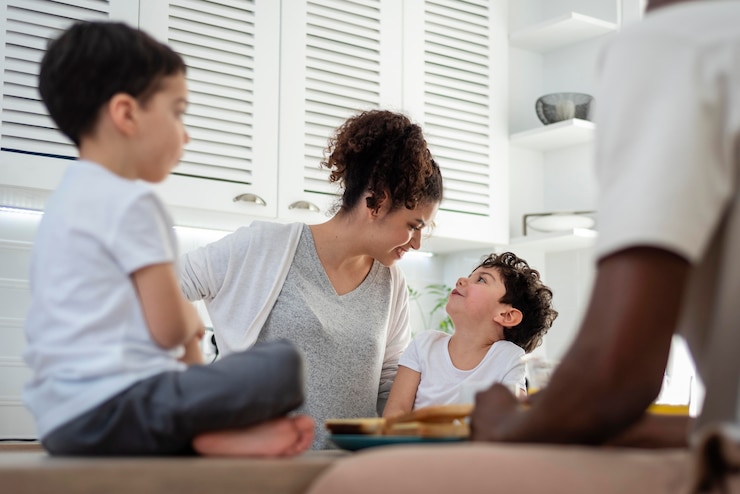
Inside: Parenting a child with special needs can undoubtedly be stressful. However, embracing acceptance, self-compassion, and gratitude can help parents find peace and joy amid daily challenges.
Table of Contents
One day, as I stood in my messy kitchen holding a freshly soiled diaper, I watched my kids play together with enthusiasm. In that moment, I realized we had the privilege of being part of an amazing, chaotic, and exhausting family. It was a day free of meltdowns, sibling fights, and endless therapy appointments. It was a moment of clarity.
After more than seven years on my journey as a special needs parent, I’ve come to appreciate these moments of clarity. The mental and emotional challenges aren’t as overwhelming as they once were, and I’ve learned a few key principles that help navigate what sometimes feels like an endless series of obstacles.
As humans, we often struggle when things don’t go as planned, especially when unexpected events affect our family. A part of us breaks when we realize our child may face ongoing challenges. Accepting our reality, rather than clinging to past expectations, is vital for emotional well-being and being present for our child. This process is essentially the experience of grief.
Grief is complex and unpredictable. While many recognize the Kubler-Ross stages of grief—denial, anger, bargaining, depression, and acceptance—they aren’t as linear as we might hope. Grief is deeply personal and not confined by time or space. It’s crucial to confront and feel our emotions rather than avoid them, as denial leads to anxiety and depression.
Acknowledging our emotions and processing them intentionally is essential for self-care as a special needs parent. Instead of seeking distractions like ice cream or screens, sit with your feelings, talk to a supportive friend, or jot down your thoughts in a journal.
Even after seven years, I’m still working through my past expectations, though not as often. Many special needs parents often feel compelled to push themselves harder, constantly seeking new therapies or solutions. Dr. Kristin Neff encourages the practice of self-compassion—showing ourselves kindness in times of perceived inadequacy or failure.
As special needs parents, we’re often told to love our children as they are. But what if we applied this to ourselves? Allow room for mistakes, speak kindly to yourself, and embrace your humanity. Embracing self-compassion can greatly enhance our well-being and set an example for our children.
During the first years with our daughter, I often felt angry and helpless. Parenthood can bring challenges and blessings. Gratitude involves recognizing the goodness in our lives and understanding its sources. Dr. Robert Emmons has studied gratitude and found it has the power to heal and energize our lives.
Focusing on the positives can help us heal from past hurts and move forward. Cultivating gratitude shifts our mindset from helplessness to hope, empowering us to be the best parents we can be.
As I sat in my kitchen reflecting, my toddler threw a toy at me, reminding me of the realities of parenthood. In special needs parenting, moments of perspective can seem brief. But with acceptance, kindness to ourselves, and gratitude, the prospect of peaceful moments is promising for both us and our children.



